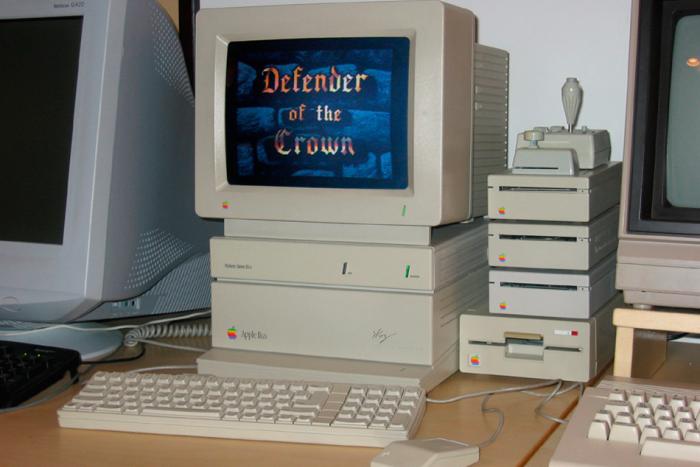There is a rip in the accused’s T-shirt. It starts above his ribs on his right side and runs in a long diagonal down to the small of his back. Roy, let’s call him, stands inside a Plexiglas and steel enclosure. Reaching through the rip he scratches his chest. Roy is 22 but looks younger. His hair is short on the sides with bangs that flop down over his eyes. He is very thin and he can’t, for the life of him, seem to stop smiling.
“My client is agreeable to proceeding with the bail hearing,” Ms. Mable, his court appointed lawyer says.
“It can be held on Wednesday,” Madam Justice says. She has long silver hair and the tone of her voice seems to suggest, strongly, that postponing would be in his best interest. There is whispering between Roy and Mrs. Mable. Then she walks from the steel and Plexiglas pen to a long wooden table and turns to face Madam Justice.
“Roy is most interesting in having the hearing today,” Ms. Mable says.
“Very well then,” Madam Justice says.
The smile on Roy’s face remains. It dominates the bottom half of his face. It isn’t sarcastic or ironic. He seems sincerely fascinated by the trappings of room 501: the robes of Madam Justice, the three cops in uniform, the law students in the gallery who watch his every move. Roy’s smile doesn’t falter even when Ms. Mauve, the Crown Prosecutor, tugs her blonde ponytail tighter, then begins to summarize the case.
Roy’s troubles, at least with the law, started on July 15, 2013, at 8:15 p.m. According to the police report he was at his mother’s home, where he did not reside. At some point he began to beat his 13-year-old sister on the head with his shoe. The police were called. When they arrived he resisted arrest by biting one of the officers as she tried to put the cuffs on him. Then Roy kicked her in the shins. When her partner attempted to intervene, Roy grabbed that officer’s testicles and pulled with great force.
Upon hearing this detail all three of the police officers in the room look directly at Roy. They will not take their eyes off of him for the remainder of the proceedings.
Roy was charged with assault. He received bail. On the evening of March 27, three days before this bail trial, he called his mother and asked if could visit her. She said no. He came to her apartment anyway. When she wouldn’t answer the door he began banging on it. The police were called. A neighbor came into the hallway to investigate the disturbance; Roy attacked him, put him in a headlock and then fled. The police later located Roy at Covenant House, a homeless youth shelter in downtown Toronto. He’s been in custody ever since.
Upon hearing this detail all three of the police officers in the room look directly at Roy. They will not take their eyes off of him for the remainder of the proceedings.
Ms. Mauve closes the folder in front of her. Roy is sworn in and then Ms. Mable starts her line of questioning.
“Where do you reside right now?” she asks.
“At Covy. Covent House.”
“How long?”
“About a year.”
“Should you be released would they have a bed for you?”
“Yes. I’m … I don’t know how to say it. Obedient? I’m always there for curfew.”
“When is that?”
“Ten.”
“Where did you live before Covenant House?”
“Group homes, foster care. From … from 9-18.”
“Why in group homes?”
“Abuse in my house.”
“Are you willing to elaborate?”
“My dad was abused. He had an order against seeing me. My mother … she couldn’t take care of me. My dad was in residential schools, adopted by a family, since he was young. His father was an alcoholic too.”
“I’m very sorry. Do you work?”
“Part time at Biggest Burgers. I’m just the guy, the helper guy.”
“Problems with drugs or alcohol?”
“No.”
“Any mental health issues?”
“Bi-polar, the doctor said. Sometimes when life gets too hard I get depressed. Discouraged I call it.”
“Would you be willing to report to a police station? Go in, report, give any changes of address or employment?”
“Yes. Absolutely.”
“Okay,” Ms. Mable says. She sits down.
Ms. Mauve stands, clears her throat. “You say that you don’t have a problem with alcohol or drugs,” she asks. The tone of her voice, while retaining traces of sympathy, is much more aggressive than Ms. Mable’s was.
“I don’t,” Roy says. The smile remains, grows slightly.
“In July you were taken to the hospital because you took a quantity of pills. Is that right?”
“It may or may not have had an influence.”
“Did you tell the police that you took them? That you took pills?”
“I may or may not have.”
“They were concerned enough to take you to the hospital. Have there been other occasions where you’ve taken pills?”
“Never.”
Ms. Mauve shakes her head, turns a page in the folder. “You told us you’re seeing a doctor. How often?”
“Every two weeks.”
“How many times have you seen him?”
“Three,” Roy says. Ms. Mauve looks down at the notes.
“Three visits every two weeks in one month?” she asks.
“There were more visits earlier. Intake”
“The doctor said you were bi-polar. Medications?”
“Yes.”
“Do you take it?”
“Yes!”
“The way you’re supposed to?”
Roy looks at the floor.
“Yes,” he eventually says.
The questioning goes on for a while. Several times the pause between Ms. Mauve’s question and Roy’s answer is conspicuously long. There are contradictions in his testimony. It seems incredible that I’m the only person in the courtroom who’s noticed this. But Ms. Mauve doesn’t press him. Why would she? Roy has no family, no home. He may or may not have a serious drug and alcohol problem. He may or may not have finished grade ten and he’s admittedly taking prescription medication for a mental health issue.
Whether it’s the bars of a jail cell or the consequences of his life history, Roy’s going to be behind something for the rest of his life. Any way you cut it he’s not leaving this courtroom a free man. The saddest thing about all of this is how Roy thinks he’s getting away with something. There he is on the stand, smiling, convinced that he’s pulling the wool over all these judicial eyes when really everybody here is bending both the law and themselves backwards to help him.
Roy has no family, no home. He may or may not have a serious drug and alcohol problem. He may or may not have finished grade ten and he’s admittedly taking prescription medication for a mental health issue.
“This is extremely difficult,” Madam Justice says after both Ms. Mable and Ms. Mauve have summarized their arguments. “But, somewhat unbelievably, there’s no previous criminal record. And the violence is limited to interactions with his mother, so the danger to the public, while present, is limited. The court sees no benefit to keeping you in custody,” Madam Justice says.
Roy’s smile grows larger still. It stays like that, beaming out at us, even as Madam Justice gives the terms of his release; a $500 bond, regular reporting to 51 Division, residence at Covenant House, sessions with mental health worker, no guns, taking his medication and absolutely no contact, directly or indirectly, with his mother or sister.
It is only this last stipulation that Roy has any trouble with. “What happens if they come and see me?” he asks.
“Do they come and visit you often?” Madam Justice responds.
“No,” Roy says and for the first time in the proceedings the smile drops from his face. His hands become still. He head tilts down. He stares at the floor. “Not at all.”






